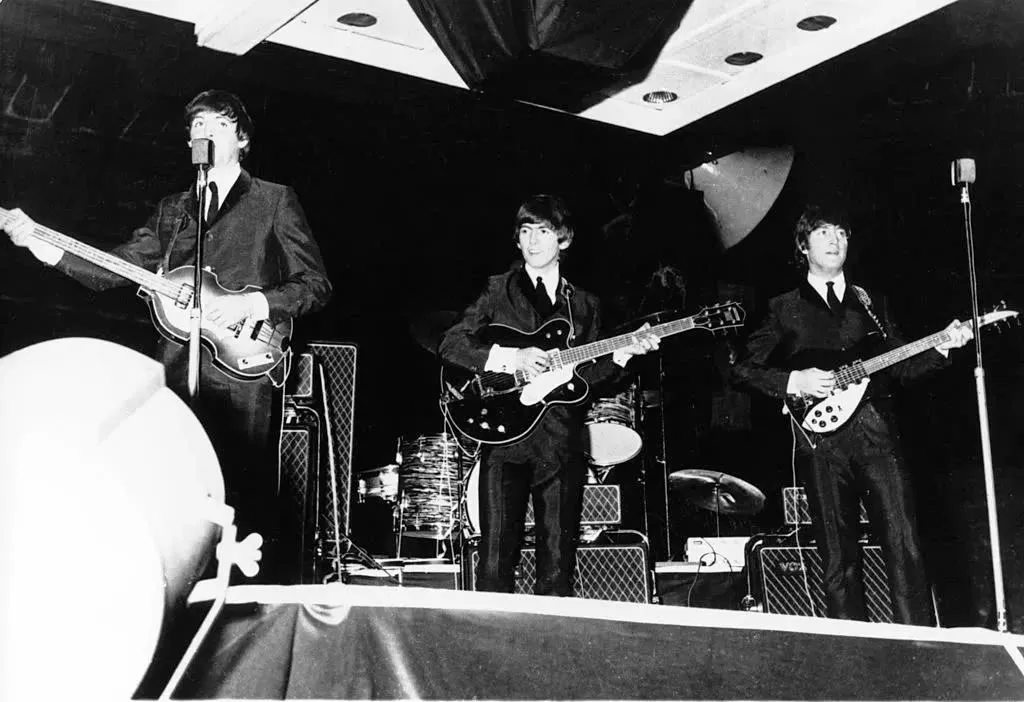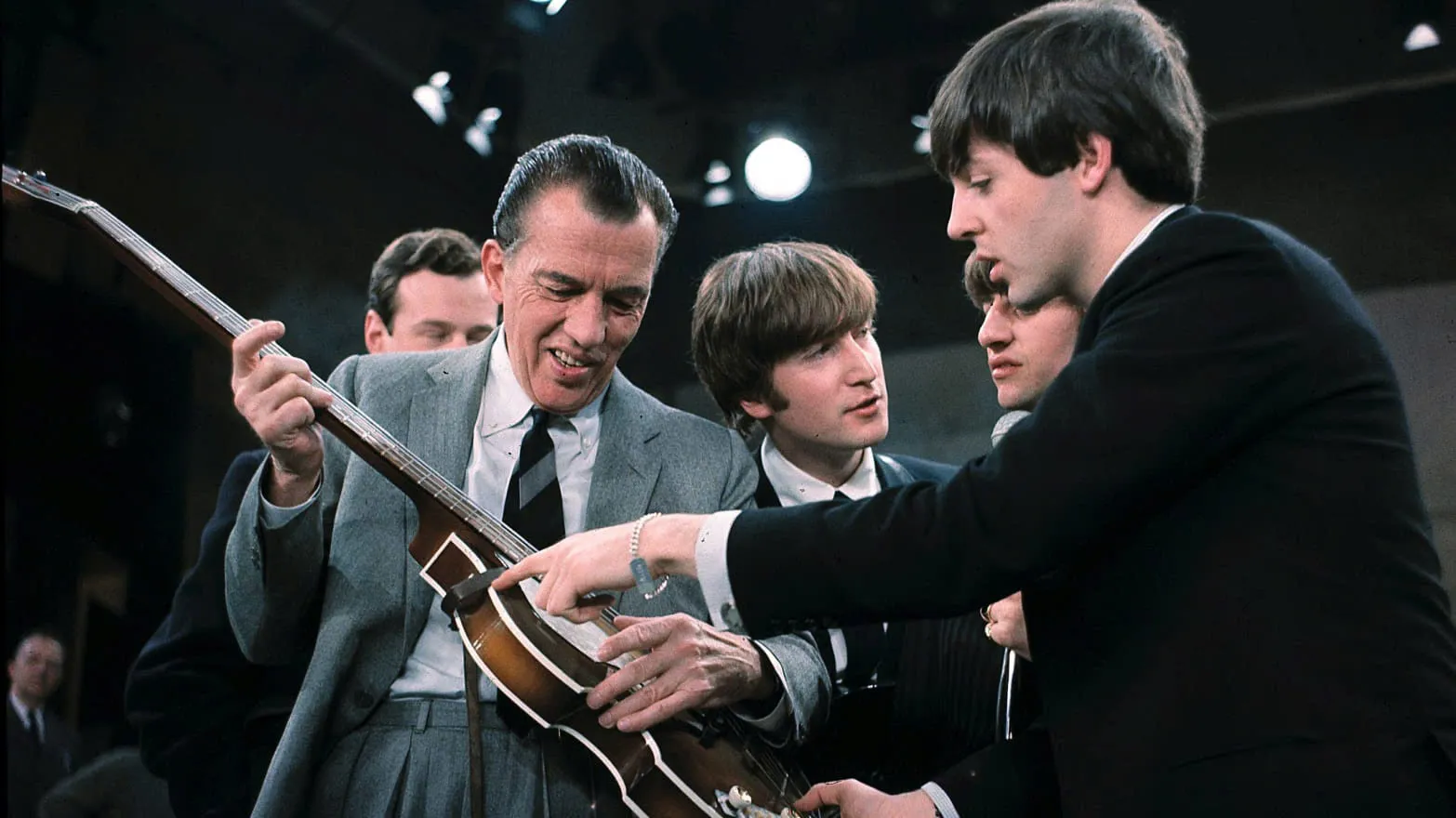The Beatles, a British rock band formed in Liverpool in 1960, are widely regarded as one of the most influential musical groups in history. Composed of John Lennon, Paul McCartney, George Harrison, and Ringo Starr, The Beatles not only transformed the sound of popular music but also had a profound impact on the culture of the 1960s and beyond. Their innovative approach to music, combined with their charisma and cultural influence, made them global icons whose legacy continues to resonate today.

Early Years and Formation
The Beatles began as a skiffle group called The Quarrymen, founded by John Lennon in 1956. Paul McCartney joined the group in 1957, followed by George Harrison in 1958. After several changes in lineup and name, they settled on The Beatles in 1960. Ringo Starr, the final member to join, replaced drummer Pete Best in 1962, completing the classic lineup.
The Beatles honed their craft during their early years playing in clubs in Hamburg, Germany, and Liverpool. These formative years were crucial in developing their musical skills and stage presence. Their time in Hamburg was particularly influential, exposing them to a wide range of musical styles and allowing them to perform for hours each day, which helped them grow as musicians.
In 1962, The Beatles signed with EMI's Parlophone label, and under the guidance of producer George Martin, they began recording what would become a groundbreaking body of work. Their first single, "Love Me Do," was released in October 1962 and marked the beginning of their meteoric rise to fame.

Beatlemania and Cultural Impact
The Beatles' popularity exploded in 1963 with the release of their second single, "Please Please Me," which topped the UK charts. This success was followed by a string of hit singles and albums, and by 1964, Beatlemania had taken hold in the United States. Their appearance on "The Ed Sullivan Show" in February 1964 was a watershed moment, watched by an estimated 73 million people, and it solidified their status as international superstars.
The Beatles' influence extended far beyond their music. They became symbols of the youth-driven cultural revolution of the 1960s. Their hairstyles, fashion choices, and attitudes challenged conventional norms and inspired a generation to embrace new ideas about identity, freedom, and creativity. The band's appeal was not limited to teenagers; they also attracted older fans and were embraced by intellectuals and artists for their wit, intelligence, and artistic ambition.
Musical Innovation and Evolution
The Beatles were not content to rest on their laurels, and their music evolved rapidly over the course of their career. Their early work, characterized by catchy melodies and simple, yet effective, lyrics, gave way to more complex and experimental compositions. Albums like "Rubber Soul" (1965), "Revolver" (1966), and "Sgt. Pepper's Lonely Hearts Club Band" (1967) pushed the boundaries of what popular music could be, incorporating elements of folk, classical, Indian music, and avant-garde soundscapes.
"Sgt. Pepper's Lonely Hearts Club Band" is often cited as a milestone in the history of music. The album was a concept album, a relatively new idea at the time, and it showcased The Beatles' willingness to experiment with form and content. The album's innovative use of studio technology, combined with its eclectic mix of musical styles, set a new standard for what an album could be and influenced countless artists across genres.
The Beatles' later work, including "The White Album" (1968) and "Abbey Road" (1969), continued to showcase their versatility and willingness to explore new musical territories. They delved into themes of introspection, spirituality, and social commentary, reflecting the changing times and their own evolving perspectives.

The Beatles and the Counterculture
The Beatles were more than just musicians; they were cultural icons who played a significant role in shaping the counterculture of the 1960s. Their music provided the soundtrack to a decade of social upheaval, and they were seen as leaders of a movement that sought to challenge authority and promote peace, love, and understanding.
In 1967, The Beatles became associated with the burgeoning psychedelic movement with the release of "Sgt. Pepper's Lonely Hearts Club Band" and their involvement in the "Summer of Love." Their song "All You Need Is Love," performed live on the first global satellite television broadcast, became an anthem for the peace and love generation.
The Beatles also explored Eastern spirituality, particularly through their association with Maharishi Mahesh Yogi and their interest in Transcendental Meditation. Their trip to India in 1968 had a profound impact on their music and philosophy, leading to the incorporation of Indian instruments and themes into their work.

The Breakup and Legacy
Despite their immense success, tensions within the band began to surface in the late 1960s. Creative differences, personal conflicts, and the pressures of fame contributed to the group's eventual breakup. The Beatles officially disbanded in 1970, following the release of their final studio album, "Let It Be."
While the breakup was a disappointment to millions of fans, it did nothing to diminish The Beatles' legacy. Each member went on to have successful solo careers, but the band's body of work remained a touchstone for generations of musicians and fans alike.
The Beatles' influence on music is immeasurable. They revolutionized the way music was created, recorded, and consumed. Their impact can be seen in the development of the album as an art form, the use of studio technology, and the integration of diverse musical styles. They inspired countless artists across genres, from rock and pop to electronic and hip-hop.
Beyond music, The Beatles left an indelible mark on popular culture. Their influence can be seen in fashion, film, literature, and even politics. They helped define the 1960s and played a significant role in shaping the attitudes and values of the time.
Conclusion
The Beatles were more than just a band; they were a cultural phenomenon that changed the world. Their music continues to be celebrated for its innovation, creativity, and timeless appeal. The Beatles' legacy is one of artistic excellence and cultural impact, and their influence will undoubtedly endure for generations to come. As pioneers of modern music and icons of a transformative era, The Beatles remain a symbol of the power of creativity and the enduring appeal of great art.


